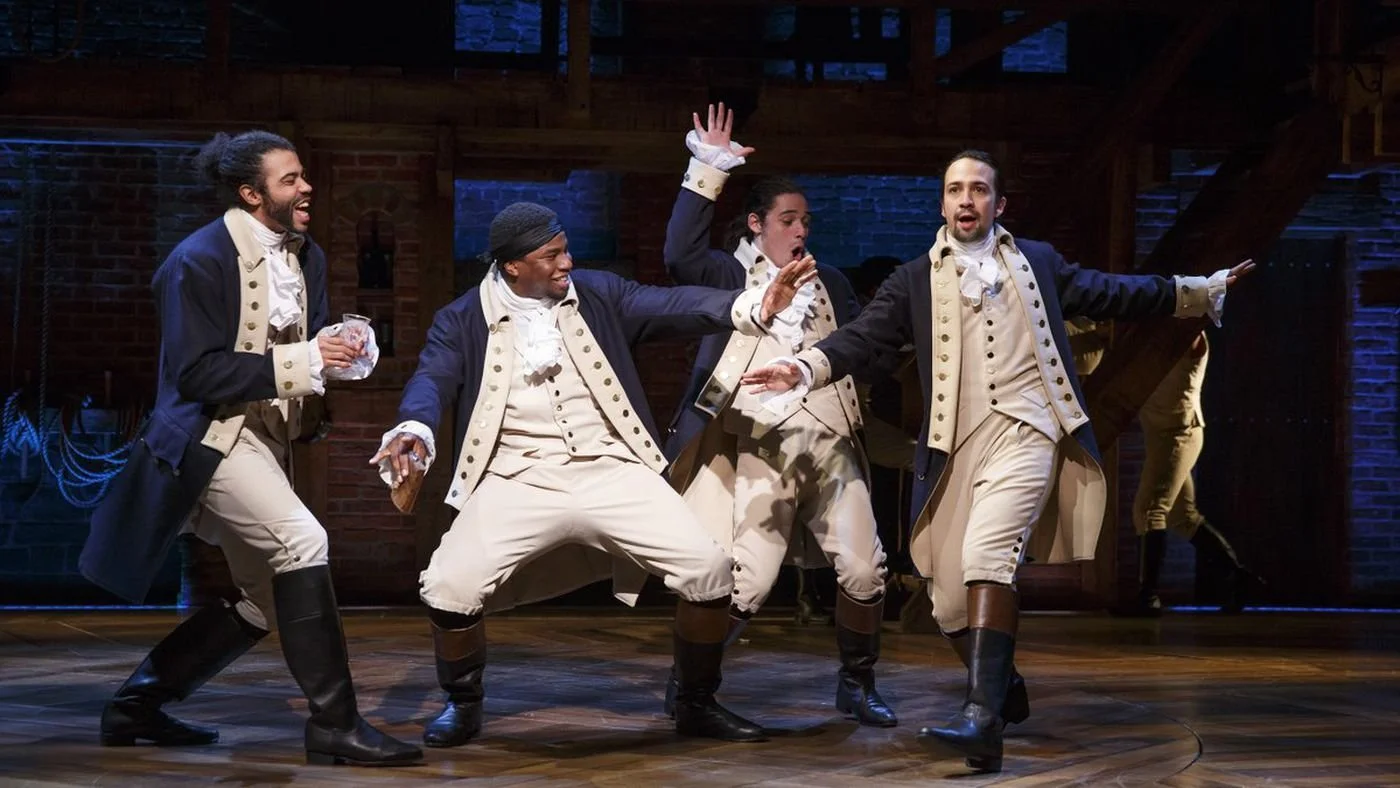The Unexpected Paywall of Proshots
(Photo: Hamilton on Disney+)
by Alex Kulak
Alex Kulak is an actor, screenwriter, and playwright currently based in Chicago. @AlexKulak2
If you ask someone with a passion for theatre how they were introduced to the art form, you’re bound to hear one of a couple answers. If you’re like me, you saw a local school or community theatre production (my cousins played Pepper and FDR in a middle school production of Annie). For others, they grew up in a family that had an appreciation for the arts, one who held a subscription to a regional theatre or maybe even took the occasional trip to New York City to see a Broadway show.
However, I think the answer that unifies all lovers of theatre is that some of our earliest experiences with theatre, particularly musical theatre, was through a professionally shot and officially licensed capture of the production, or as it’s colloquially called, a proshot. There are the classics, like the films of Into The Woods or Sunday In The Park With George that were filmed for American Playhouse, or more modern ones like Jekyll & Hyde with David Hasselhoff or Company with Raúl Esparza.
Then there are the younger among us, who grew up in the age of YouTube and online video sharing, who have encountered most of the theatre they’ve seen through illegal, unauthorized recordings of Broadway shows, known as bootlegs.
Bootlegs have been around as long as camcorders have been available to consumers, but have only exploded in prevalence as video recording technology has gotten smaller and more accessible. Since you can record video on virtually any cell phone sold on the market, there are hundreds of cameras at any given performance on Broadway.
Bootlegs have always been controversial and exclusively frowned upon by those professionally involved with the theatre. Every so often, an article or an actor will come out decrying them. In 2015, Hamilton creator Lin-Manuel Miranda responded to a tweet about a bootleg of his show:
“We're going to make a really good recording of the show this summer and I want you to hear that… I spent 6 years writing this and when you hear it, I want you to hear what I intended.”
That recording was eventually released on July 3rd, 2020, and it was well worth the wait. It was an immersive, cinematic rendering of one of the greatest musicals of the 21st century, with the talents of nearly all the original company members immortalized on film. Around its release, many online began to ask: why isn’t every musical given this treatment? If the producers of Hadestown or Fun Home or The Band’s Visit don’t want us watching the bootleg, why don’t they give us the means to watch it in a legal way?
Like many things in show business, the answer to this question comes down to the business.
Accessibility in the arts is discussed now more than ever. Since the reopening of Broadway, we are painfully aware of how expensive tickets can be. Theatre produced at the level of Broadway is always fiscally risky, with an estimated four out of five shows closing before they’ve recouped their initial capitalization, according to Tony-winning producer Ken Davenport. Producers and writers will always be hesitant to produce an incarnation of their work that might dilute their box office returns.
Then, there’s the matter of making the actual proshot itself, which is what leads to the biggest hurdle: It is not financially viable to make a proshot of most Broadway shows.
The biggest reason comes down to a matter of unions. In the United States, there are two unions for actors: the Screen Actors Guild (or SAG) for those working in film and television, and Actor’s Equity for those working on stage. Performers on Broadway are usually members of Actor’s Equity, but a proshot would be under the purview of SAG, meaning that every actor in a show would have to be given a special contract to participate in the filming. Factoring in the other costs of filming (cameras, post-production, compensation for the writers, director, designers, and musicians), and the fact that theatre is already a niche market, hiring a lawyer to handle the paperwork between the two unions would eat up any profit margin the producers hoped of making.
This is especially apparent in the influx of pro-shots coming from the West End and Off-West End (such as Kinky Boots, and the upcoming recordings of Aladdin and Heathers). In the UK, a single union exists for both screen and stage actors, and special permissions are not necessary. According to Marquee TV co-founder Marc Kirschner, “To capture a Broadway production costs 5 to 10 times what it would overseas,” citing the lack of union paperwork and initiatives for filming live theatre that are stipulated in state funding requirements.
It appears that streaming services have stepped in to help make theatre more accessible to the masses. In addition to Hamilton on Disney+, we’ve seen Come From Away on Apple TV+, Oh, Hello on Netflix, American Utopia on HBO, and What The Constitution Means To Me on Amazon Prime. Many of these are smaller-scale shows with smaller casts and productions that are being released by large companies that can afford to swallow loss.
While this is a great start, there’s more that can be done. SAG and Actor’s Equity need to find a means of streamlining the contract process, making it easier for their actors to cross the aisle. Broadway has enjoyed the presence of film and TV stars for years, why can’t SAG return some of that largesse?
Furthermore, producers need to eschew their fears that proshots will affect the box-office performance of the stage show. They are businesspeople that have dedicated their lives to sharing theatre with the world but are using their power to restrict that access. For anyone who grew up watching proshots, we know that they can’t limit the audience theatre has. They expand it.
